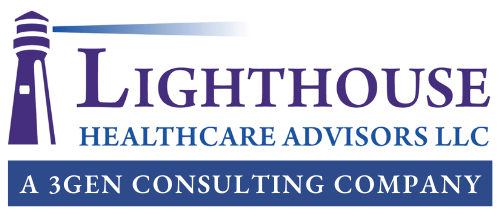What is the first thought that comes to mind when you think about healthcare? Do you think about the rising costs and how it affects providers’ and hospitals’ financial statements? Perhaps you think about care quality and all the metrics surrounding it? Or are you thinking about some hot topics or industry buzz words like population health? I am sure that you could probably come up with a laundry list of words that you would associate with this broad topic. I would say that many of us wouldn’t last more than 5 minutes thinking about all that is going on in healthcare before getting overwhelmed. I would also guess, that the answers to this question from people who do not work in the healthcare industry would be very different from those who do. The average American hears this word and thinks about their doctor, their health insurance, or the cost of their medication. Unfortunately, and probably most likely, they have an overall feeling of confusion as to how the healthcare system really operates. While time has brought about some change to the industry, the basic message has stayed the same over the years. The complex, inefficient, and often confusing model through which the healthcare industry delivers care has stayed eerily similar over the last fifteen years and it is time for a change.
The movement for change in the industry is not a new idea by any means. CMS implemented the first pay for performance program, the Medicare Physician Group Practice demonstration, back in 2005 to reduce unnecessary cost and improve quality for patients with common chronic illnesses. Since then a plethora of programs and initiatives have come out from CMS and other organizations in an effort to achieve the same goal: ACOs, MACRA, , value-based programs for hospital care and alternative payment models for physician groups just to name a few. But while many people and various programs have been pushing these low cost, high quality initiatives and ideas, none of them have transformed the fundamental issues with care delivery. An overwhelming majority of reimbursement is still based on volume, the programs are excessive and confusing, and we are still not treating the cause of poor health, only the symptoms. Thankfully, people are starting to recognize this and are beginning to innovate.
New players in the industry, specifically players who are incorporating new technologies and data into care delivery, are the main catalyst behind this innovation. For the first time, people are starting to look at how we can proactively treat the causes of sickness before we must react to them in a costly ED or inpatient setting. Innovators are now considering the socio-economic factors of certain patients and how poverty affects their ability to access care. They are introducing programs to provide proper nutrition to those who are living in ‘Food Deserts’. They are starting to ask how to actively encourage patients to be more physically active and take initiative in their own health. This new line of thinking is also pouring into the more non-clinical areas of healthcare as well. These innovators are now asking how we can include the average American to actively participate in their own healthcare and truly understand what is going on. Simplifying patient EOBs, making a patient’s bill straight forward and easy to understand, and educating the public on what a healthy lifestyle truly means. There is a lot of very exciting projects happening in the industry today.
Clearly, all these things are huge initiatives and we do not have all the answers. However, it is important to not look at these new innovations as just one more item added to the laundry list of things we already must do. It is critical that we see these initiatives as a complete change in the way healthcare operates. As someone who is just starting their career, I cannot think of another industry that has the opportunity for so much change and it is beyond exciting. I recently left the world of hospital finance to join Lighthouse because our desire is to be a part of this new wave of healthcare and we are open to the new way of thinking that is required to get there. Real innovation in the industry means more than just reinventing payment models, care delivery or any of those other wonderful things that have already been mentioned. It means reinventing ourselves and how we with think about this exciting industry in which we work.
Interested in learning more? Check out some of the exciting programs happening around the industry at the following links:
Mobile food truck aimed at ending urban food deserts – AP News
Why hospitals are becoming increasingly popular Uber and Lyft destinations – The Daily Tar Heel
Dial-a-Dietitian – Misericordia Health Center
Mobile Integrated Health – Community Paramedicine Program – University of Maryland Medical System
Content retrieved from:
https://lighthousehealthcareadvisors.com/post/healthcare-reinventing-the-industry-ourselves.


